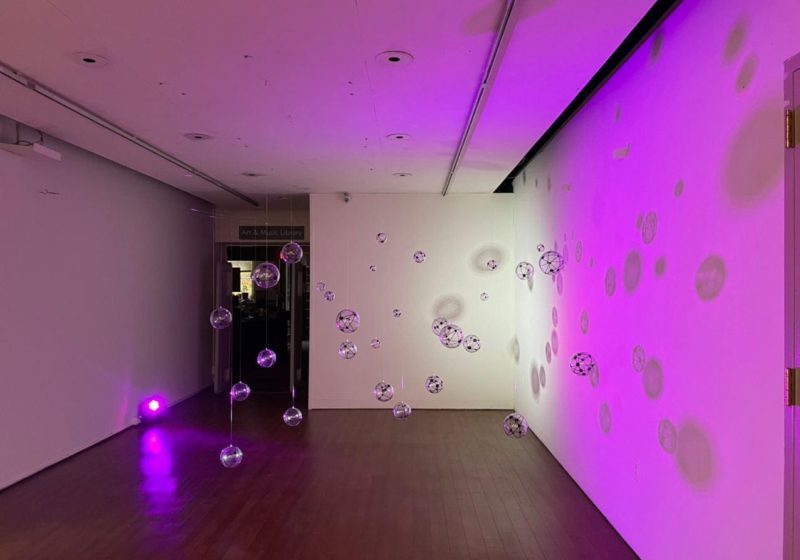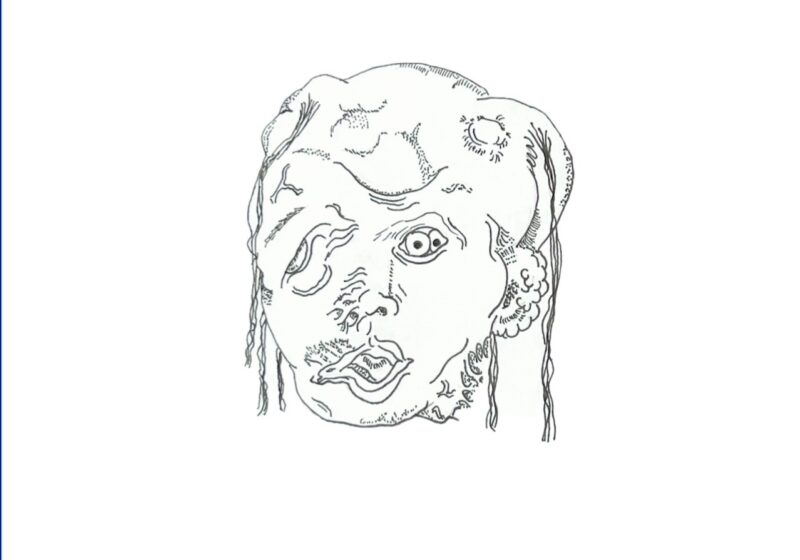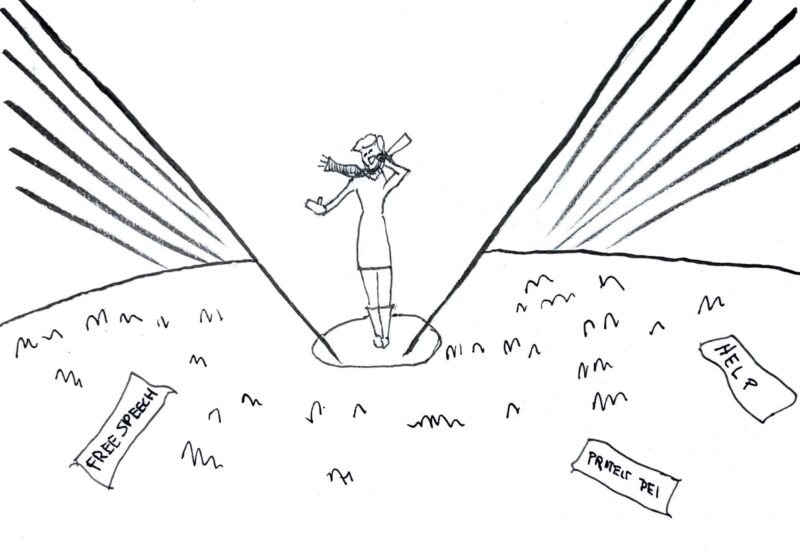As much as COVID-19’s rapid spread has been a reminder of just how closely our societal mechanisms function, Mizin Shin’s take on this sentiment, “Small World Network Model” has a different approach. Her work, hanging in the Frontispace of the Rush Rhees Art and Music library, is a more intuitive and aesthetically pleasing representation of that sentiment.
As shown above, the piece is made up of glass orbs hanging from strings at different heights, which reflect light and cast shadows around the room. Even though Shin’s piece is deceptively simple at first glance, in context, it becomes a very powerful representation of our world.
Each orb is meant to represent an economic or social mechanism that exists independently, which Shin portrays by hanging the orbs separately. While these mechanisms are able to function independently of each other, the culmination of their reflected lights and shadows represent a “macro network” of our world’s social and economic systems.
The piece does a wonderfully minimalist job at representing how our social and economic systems seem to function. Even though they technically exist independently, these systems constantly and reciprocally affect each other. In less pretentious terms, it shows how they may seem deceptively simple and self-contained, but only at first glance.
You can view Mizin Shin’s “Small World Network Model” today at the Art and Music Library.




